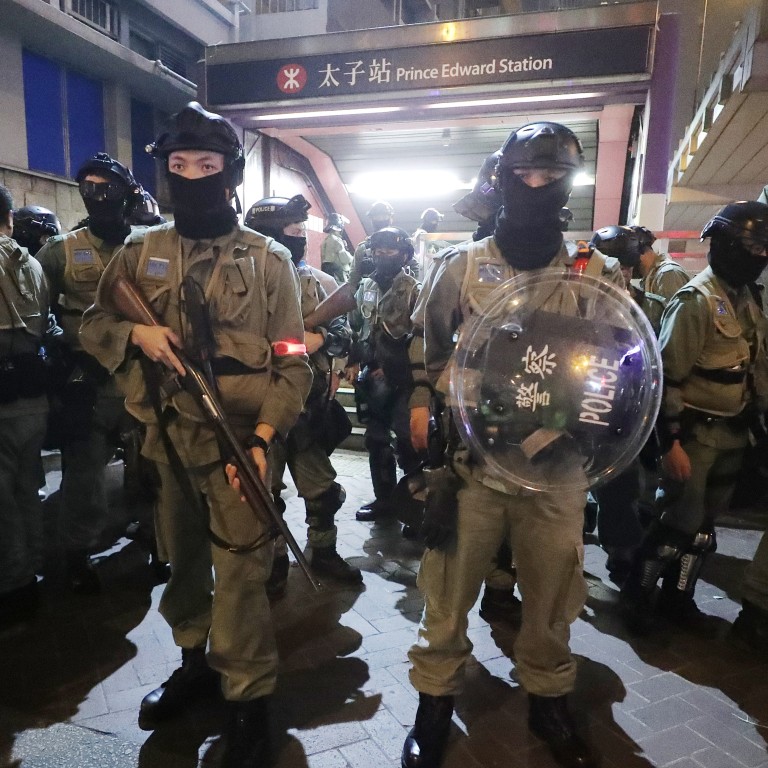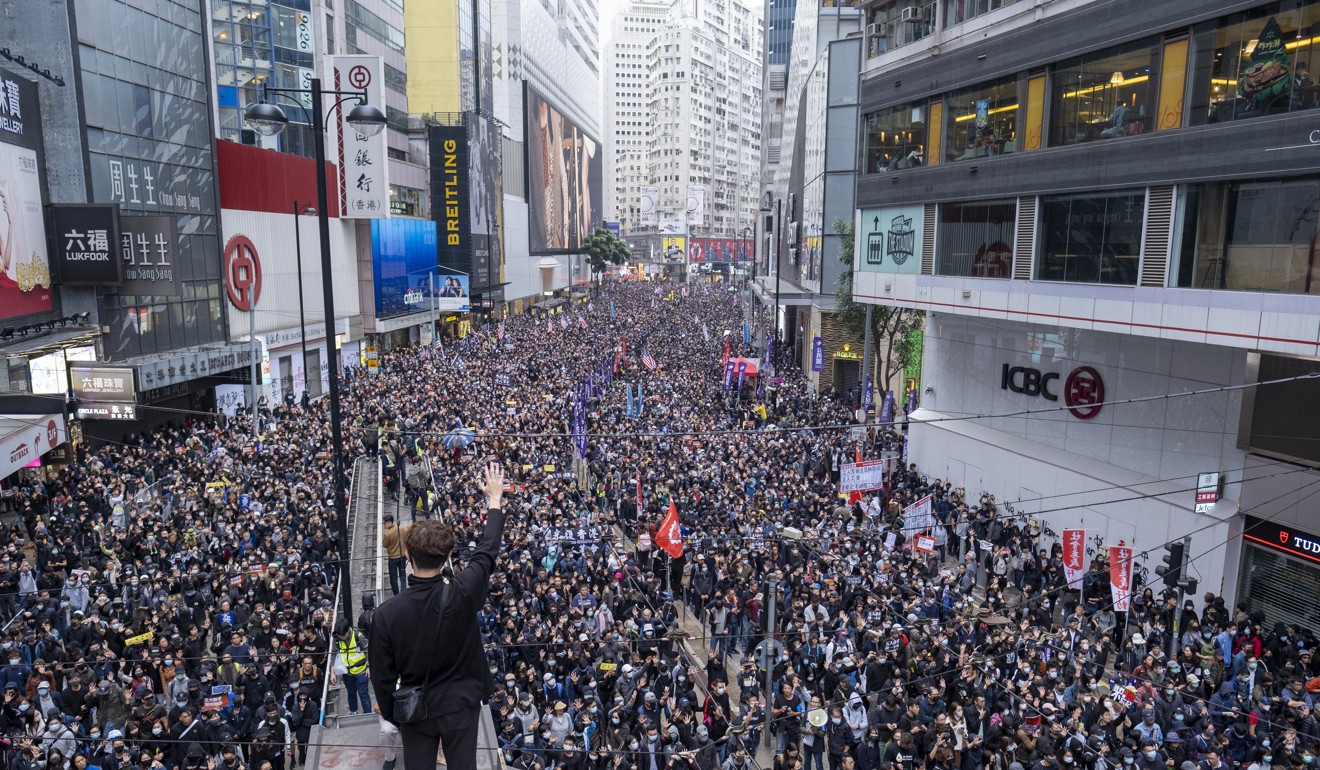
Hong Kong protests: exploring the mechanism of police overtime compensation and the controversies behind it
- Officers battling anti-government protests were paid HK$1.2 billion extra since civil unrest broke out in June
Hong Kong’s embattled police officers have been paid HK$1.2 billion in overtime and other allowances since anti-government protests began in June.
While nearly seven months of social unrest and protest violence have stretched the 30,000-strong force to the limit, forcing officers to constantly work overtime, their compensation for the extra hours and other expenses has come under intense scrutiny.
City Weekend looks at the mechanism of the overtime compensation and the controversies behind it.
What is the mechanism for police and civil service overtime pay?
Sparked by fierce opposition to the now-withdrawn extradition bill, the protests have since morphed into an often-violent uprising, focusing on calls for greater democracy and police accountability.
The Security Bureau last month revealed that the government had paid about 11,000 police officers Disciplined Services Overtime Allowance (DSOA) of up to HK$950 million (US$122 million) over the past six months. That would mean each of them received HK$14,394 a month on average in extra pay since June.
The bureau noted there were rules in place for overtime payments.

“Time off in lieu is the normal recompense for OT work performed … Where the granting of time off is, or is likely to be, impracticable within 30 days of the date on which OT work is performed, payment of DSOA to eligible officers may be approved,” it said.
While the maximum amount of overtime work a civil servant could undertake was normally 60 hours a month, the bureau added, the force had adjusted the ceiling. But it did not elaborate further.
A police source said the overtime ceiling for Operation Tiderider, launched in June to tackle anti-government protests, was capped at 150 hours per month.
Officers of chief inspector rank or below earn overtime pay, which is calculated by the hour based on their salary, while superintendents or higher-ranked officers only receive compensation leave.
On top of nearly HK$1 billion in overtime claims, a letter from the Civil Service Bureau to the Legislative Council last month revealed officers had received HK$235 million in meals and other allowances during the period.
Between June and November, frontline officers and back-end clerical staff, including those who had carried out tasks beyond their job description, were given allowances worth HK$85 million.
Another HK$50 million was spent on meals, but officers deployed in the field and unable to get food were later provided with lunch boxes which ran up a further HK$100 million bill, sources said.
A police spokesman said the daily rate of food allowance for each person ranged from HK$69 to HK$137.
The letter, in response to opposition lawmaker Eddie Chu Hoi-dick’s queries on overtime wages, also explained that members of the disciplined forces could claim “job-related allowances” if they carried out duties beyond their rank and daily work.
Another rule in the civil servants’ guidelines permitted allowances to be granted during justifiable, “special and unique” circumstances, the letter said.
Those who earned less than HK$105,000 per month were eligible for the allowances, which had been granted to dog trainers, drivers, divers, undercover officers and detectives, as well as personnel responsible for protecting public officials.
What are the controversies involved?
Opposition legislators have said they would fight tooth and nail to stop the government from giving police overtime pay or a wage increases, arguing they are undeserving because of their conduct in handling the protests amid allegations of brutality.
On Thursday, Kwok Cheuk-kin, a former civil servant known for taking the Hong Kong government to court on numerous occasions, lodged a legal challenge against the decision to grant police more than HK$1 billion in overtime pay, arguing it amounted to favourable treatment that violated equality provisions under the city’s mini-constitution, the Basic Law. He argued that other civil servants who clocked extra hours, including judiciary employees, firefighters, doctors, paramedical personnel and cleaning workers, were not similarly compensated.

Police associations have countered that officers would rather have regular hours off than work endlessly, and that they would welcome a halt to protest chaos even if it meant no more overtime pay. Manpower has been stretched thin to the extent that extra hands have had to be called in from other disciplined services as special constables, including from the Correctional Services Department.
Other protest-hit sectors are demanding similar compensation as they reel from extra workloads.
As the police overtime payment was being announced, medical sector lawmaker Pierre Chan Pui-yin took to social media to protest over what he characterised as unequal treatment of health care professionals, who also worked long hours treating people injured in the protests.

In a Facebook post, he wrote: “Doctors in Hong Kong have no overtime allowances, because many seniors have told us any time on duty is training.”
Hong Kong has long had a workaholic culture, in which employees spend time on the job beyond their contracted hours without adequate compensation. A study released in April last year by the Hong Kong Confederation of Trade Unions showed one in five of the city’s more than 3 million employees worked an average of 55 hours per week last year, or 11 hours a day.
The government set up a Standard Working Hours Committee in 2013 to study the matter and overtime compensation. But instead of legislating standard working hours, it has so far only promised to introduce guidelines for 11 industries, citing divergent views from different sectors.
But trade unions and lawmakers have called for the government to set up legislation stipulating a standard 44-hour working week.
